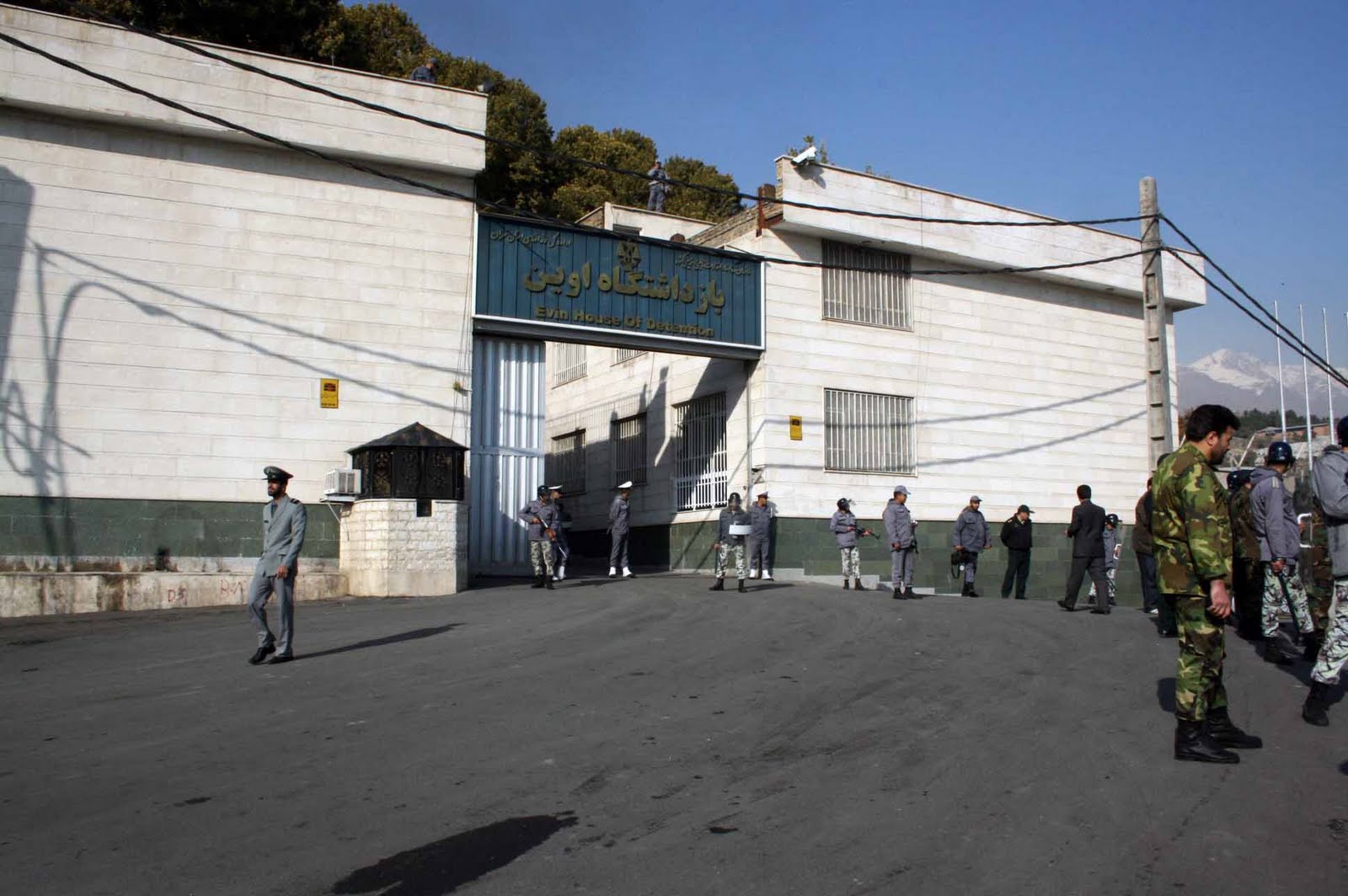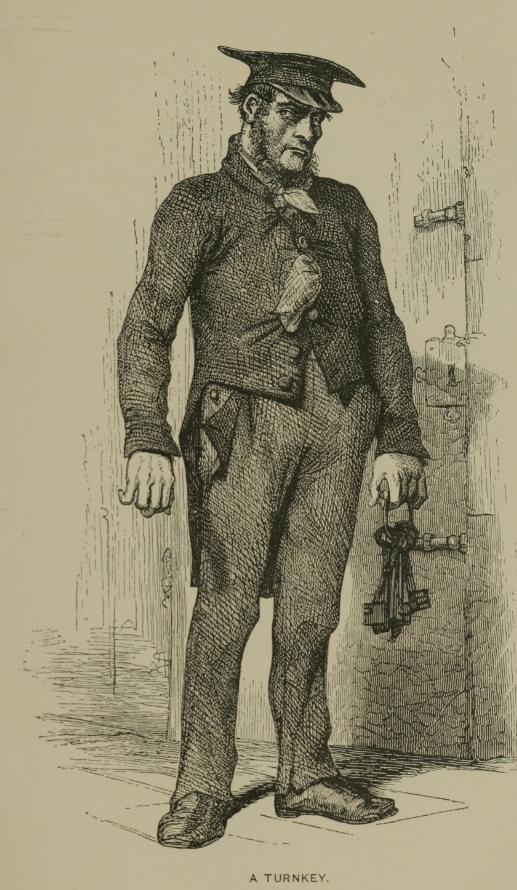|
2010 Evin Prison Hunger Strike
On July 26, 2010, seventeen prisoners from Ward 350 of Evin prison, Iran, executed a 16-day hunger strike to protest solitary confinement, as well as the poor living conditions within the prison. This included the lack of necessary medical treatment, arbitrary detention, denial of access to legal counsel, suspension of visitation privileges and abuse from prison guards. Subsequent to the hunger strike, authorities placed the seventeen prisoners in solitary confinement in Ward 240, while also prohibiting them from making phone calls, visiting their families, or contacting their lawyers. Overall, the action did not achieve its objectives of improving conditions within the prison or gaining access to legal counsel. However, one of the prisoners on strike, Babak Bordbar, was released for unknown reasons on August 10. Background On June 12, 2009, Mahmoud Ahmadinejad was re-elected as President of the Islamic Republic of Iran, with 62% of the vote. Large irregularities in these results, ... [...More Info...] [...Related Items...] OR: [Wikipedia] [Google] [Baidu] |
Evin Prison
Evin Prison () is a prison located in the Evin neighborhood of Tehran, Iran. The prison has been the primary site for detaining Iran's political prisoners since 1972, before and after the Iranian Revolution, in a purpose-built wing nicknamed "Evin University" due to the high number of students and intellectuals detained there. Evin Prison has been accused of committing "serious human rights abuses" against detained political dissidents and critics of the government. History Evin Prison was constructed in 1972 under the reign of Mohammad Reza Pahlavi. It is located at the foot of the Alborz mountains on the land that was the former home of Ziaeddin Tabatabaee, who briefly served as prime minister in the 1920s. The prison grounds include an execution yard, a courtroom, and separate blocks for common criminals and female inmates. It was originally operated by the Shah's security and intelligence service, SAVAK. It was initially designed to house 320 inmates—20 in solitary cel ... [...More Info...] [...Related Items...] OR: [Wikipedia] [Google] [Baidu] |
Petition
A petition is a request to do something, most commonly addressed to a government official or public entity. Petitions to a deity are a form of prayer called supplication. In the colloquial sense, a petition is a document addressed to an official and signed by numerous individuals. A petition may be oral rather than written, or may be transmitted via the Internet. Legal ''Petition'' can also be the title of a legal pleading that initiates a legal case. The initial pleading in a civil lawsuit that seeks only money (damages) might be called (in most U.S. courts) a ''complaint''. An initial pleading in a lawsuit that seeks non-monetary or "equitable" relief, such as a request for a writ of ''mandamus'' or ''habeas corpus'', custody of a child, or probate of a will, is instead called a ''petition''. Act on petition is a "summary process" used in probate, ecclesiastical and divorce cases, designed to handle matters which are too complex for simple motion. The parties in a case exch ... [...More Info...] [...Related Items...] OR: [Wikipedia] [Google] [Baidu] |
Parliament Of Canada
The Parliament of Canada () is the Canadian federalism, federal legislature of Canada. The Monarchy of Canada, Crown, along with two chambers: the Senate of Canada, Senate and the House of Commons of Canada, House of Commons, form the Bicameralism, bicameral legislature. The 343 members of the lower house, the House of Commons, are styled as Member of Parliament (Canada), ''Members of Parliament'' (MPs), and each elected to represent an Electoral district (Canada), electoral district (also known as a riding). The 105 members of the upper house, the Senate, are styled ''senators'' and appointed by the Governor General of Canada, governor general on the advice of the Prime Minister of Canada, prime minister. Collectively, MPs and senators are known as ''parliamentarians''. Bills may originate in either the House of Commons or the Senate, however, bills involving raising or spending funds must originate in the House of Commons. By Constitutional convention (political custom), cons ... [...More Info...] [...Related Items...] OR: [Wikipedia] [Google] [Baidu] |
United Nations Working Group On Arbitrary Detention
The Working Group on Arbitrary Detention (WGAD) is a body of independent human rights experts that investigate cases of arbitrary arrest and detention. Arbitrary arrest and detention is the imprisonment or detainment of an individual, by a State, without respect for due process. These actions may be in violation of international human rights law. The Working Group was established by resolution in 1991 by the former UN Commission on Human Rights. It is one of the thematic special procedures overseen by the United Nations Human Rights Council, and is therefore a subsidiary body of the UN. Mandate and composition The Working Group is mandated to receive and verify information from a variety of sources, in order to investigate cases of detention imposed arbitrarily, or otherwise inconsistently with the relevant international standards set forth in the Universal Declaration of Human Rights. Article 9 states: 'No one shall be subjected to arbitrary arrest, detention, or exile'. In con ... [...More Info...] [...Related Items...] OR: [Wikipedia] [Google] [Baidu] |
Human Rights Violations
Human rights are universally recognized moral principles or norms that establish standards of human behavior and are often protected by both national and international laws. These rights are considered inherent and inalienable, meaning they belong to every individual simply by virtue of being human, regardless of characteristics like nationality, ethnicity, religion, or socio-economic status. They encompass a broad range of civil, political, economic, social, and cultural rights, such as the right to life, freedom of expression, protection against enslavement, and right to education. The modern concept of human rights gained significant prominence after World War II, particularly in response to the atrocities of the Holocaust, leading to the adoption of the Universal Declaration of Human Rights (UDHR) by the United Nations General Assembly in 1948. This document outlined a comprehensive framework of rights that countries are encouraged to protect, setting a global s ... [...More Info...] [...Related Items...] OR: [Wikipedia] [Google] [Baidu] |
Imprisonment
Imprisonment or incarceration is the restraint of a person's liberty for any cause whatsoever, whether by authority of the government, or by a person acting without such authority. In the latter case it is considered " false imprisonment". Imprisonment does not necessarily imply a place of confinement with bolts and bars, but may be exercised by any use or display of force (such as placing one in handcuffs), lawfully or unlawfully, wherever displayed, even in the open street. People become prisoners, wherever they may be, by the mere word or touch of a duly authorized officer directed to that end. Usually, however, imprisonment is understood to imply actual confinement against one's will in a prison employed for the purpose according to the provisions of the law. Generally gender imbalances occur in imprisonment rates, with incarceration of males proportionately more likely than incarceration of females. History Africa Before colonisation, imprisonment was used in sub-Saharan ... [...More Info...] [...Related Items...] OR: [Wikipedia] [Google] [Baidu] |
Lawyer
A lawyer is a person who is qualified to offer advice about the law, draft legal documents, or represent individuals in legal matters. The exact nature of a lawyer's work varies depending on the legal jurisdiction and the legal system, as well as the lawyer's area of practice. In many jurisdictions, the legal profession is divided into various branches — including barristers, solicitors, conveyancers, notaries, canon lawyer — who perform different tasks related to the law. Historically, the role of lawyers can be traced back to ancient civilizations such as Greece and Rome. In modern times, the practice of law includes activities such as representing clients in criminal or civil court, advising on business transactions, protecting intellectual property, and ensuring compliance with laws and regulations. Depending on the country, the education required to become a lawyer can range from completing an undergraduate law degree to undergoing postgraduate education and ... [...More Info...] [...Related Items...] OR: [Wikipedia] [Google] [Baidu] |
Vahid Sayadi Nasiri
Vahid Sayadi Nasiri (; 27 August 1980 – 12 December 2018) was an Iranian human rights activist and political prisoner who died on hunger strike. Sayadi Nasiri was also a constitutional monarchist whose social media-based anti-Islamic republic point of view caused him to be put in jail.Death of Iranian Political Prisoner and Human Rights Activist Vahid Sayadi-Nassiri ''U.S. Department of State'' Life In 2018 he was moved from to ' ...[...More Info...] [...Related Items...] OR: [Wikipedia] [Google] [Baidu] |
Human Rights Watch
Human Rights Watch (HRW) is an international non-governmental organization that conducts research and advocacy on human rights. Headquartered in New York City, the group investigates and reports on issues including War crime, war crimes, crimes against humanity, Child labour, child labor, torture, human trafficking, and Women's rights, women's and LGBTQ rights. It pressures governments, policymakers, companies, and individual abusers to respect human rights, and frequently works on behalf of refugees, children, migrants, and political prisoners. The organization was founded in 1978 as Helsinki Watch, whose purpose was to monitor the Soviet Union's compliance with the 1975 Helsinki Accords. Its separate global divisions merged into Human Rights Watch in 1988. The group publishes annual reports on about 100 countries with the goal of providing an overview of the worldwide state of human rights. In 1997, HRW shared the Nobel Peace Prize as a founding member of the International C ... [...More Info...] [...Related Items...] OR: [Wikipedia] [Google] [Baidu] |
Green Revolution
The Green Revolution, or the Third Agricultural Revolution, was a period during which technology transfer initiatives resulted in a significant increase in crop yields. These changes in agriculture initially emerged in Developed country , developed countries in the early 20th century and subsequently spread globally until the late 1980s. In the late 1960s, farmers began incorporating new technologies, including High-yielding variety, high-yielding varieties of cereals, particularly dwarf wheat and rice, and the widespread use of Fertilizer, chemical fertilizers (to produce their high yields, the new seeds require far more fertilizer than traditional varieties), Pesticide , pesticides, and controlled irrigation. At the same time, newer methods of cultivation, including mechanization, were adopted, often as a package of practices to replace traditional agricultural technology. This was often in conjunction with loans conditional on policy changes being made by the Developing coun ... [...More Info...] [...Related Items...] OR: [Wikipedia] [Google] [Baidu] |
Prison Guards
A prison officer (PO) or corrections officer (CO), also known as a correctional law enforcement officer or less formally as a prison guard, is a uniformed law enforcement official responsible for the custody, supervision, safety, and regulation of prisoners. Terms for the role Historically, terms such as " jailer" (also spelled " gaoler"), "guard" and "warder" have all been used. The term "prison officer" is used for the role in the UK and Ireland. It is the official English title in Denmark, Finland, Sweden and Poland. The term "corrections officer" or "correction officer" is used in the U.S. and New Zealand. The term "correctional police officer" or "CPO" is used in New Jersey. Due to the law enforcement status and authority of New Jersey's officers, New Jersey's officers employed by the Department of Corrections are classified as "police officers". Brazil has a similar system to New Jersey, but the officers are known as "state penal police agent" or "federal penal pol ... [...More Info...] [...Related Items...] OR: [Wikipedia] [Google] [Baidu] |






